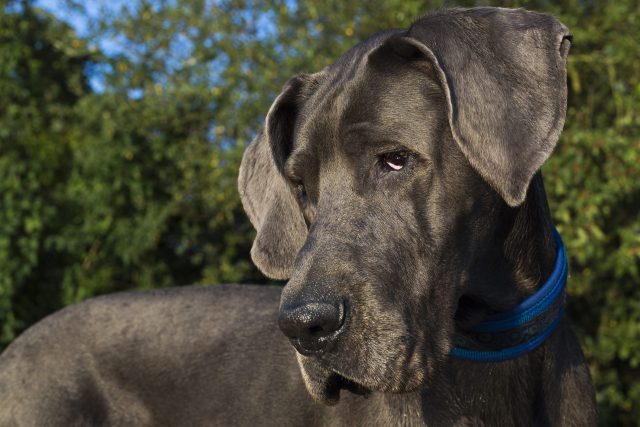As beloved members of our families, dogs bring immense joy, love, and companionship into our lives. Unfortunately, like humans, they are also susceptible to various health issues, including cancer. Some breeds are more predisposed to this devastating disease due to genetic factors.
In this post, we’ll explore the top 10 dog breeds prone to cancer, the types of cancer they are susceptible to, and the reasons behind their predisposition.
1. Golden Retriever
Golden Retrievers are cherished for their friendly and tolerant attitude. However, they are also one of the most cancer-prone breeds. They commonly develop:
- Hemangiosarcoma: A type of cancer that arises from the blood vessels and usually affects the spleen, liver, or heart.
- Lymphoma: Cancer that originates in the lymphocytes, a type of white blood cell.
- Mast Cell Tumors: These tumors originate from mast cells, which play a role in allergic responses.
Why: The high incidence of cancer in Golden Retrievers is attributed to genetic factors. A lack of genetic diversity due to selective breeding practices has led to an increased risk of inheriting mutations that predispose them to cancer.
2. Boxer
Boxers are known for their boundless energy and affectionate nature. Unfortunately, they are highly susceptible to several types of cancer, particularly:
- Lymphoma
- Mast Cell Tumors
- Brain Tumors
Why: Boxers have a genetic predisposition to cancer, particularly mast cell tumors. The breed’s relatively limited gene pool contributes to the higher risk of developing cancer.
3. Rottweiler
Rottweilers are loyal and protective, but they face a high risk of developing cancer, especially:
- Osteosarcoma: A type of bone cancer that is particularly aggressive.
- Lymphoma
Why: The genetic makeup of Rottweilers makes them particularly prone to osteosarcoma. Their large size and rapid growth rate also contribute to the development of this type of cancer.
4. Bernese Mountain Dog
Bernese Mountain Dogs are gentle giants with a calm disposition. Sadly, they have a shorter lifespan compared to many breeds, largely due to:
- Histiocytic Sarcoma: A rare and aggressive cancer that affects histiocytes, a type of immune cell.
- Mast Cell Tumors
- Lymphoma
Why: The breed’s genetic background includes a high incidence of histiocytic sarcoma. The Bernese Mountain Dog’s limited genetic diversity exacerbates their susceptibility to cancer.
5. German Shepherd
German Shepherds are known for their intelligence and versatility as working dogs. They are prone to several types of cancer, including:
- Hemangiosarcoma
- Lymphoma
- Osteosarcoma
Why: German Shepherds’ susceptibility to cancer is influenced by their genetic predisposition and the breed’s overall size, which may contribute to the development of osteosarcoma.
6. Great Dane
Great Danes, known for their enormous size and gentle temperament, are at risk for:
- Osteosarcoma
- Lymphoma
- Hemangiosarcoma
Why: The size of Great Danes and their rapid growth rate increase their risk of developing bone cancer. Genetic factors also play a significant role in their cancer susceptibility.
7. Labrador Retriever
Labrador Retrievers are America’s most popular dog breed, loved for their friendly and outgoing nature. However, they are prone to:
- Lymphoma
- Mast Cell Tumors
- Hemangiosarcoma
Why: Labrador Retrievers’ genetic predisposition to certain cancers, combined with their popularity and extensive breeding, has led to a higher incidence of cancer.
8. Beagle
Beagles are small, energetic, and friendly dogs. They are susceptible to:
- Bladder Cancer (Transitional Cell Carcinoma)
- Lymphoma
- Mammary Tumors: Particularly in females who are not spayed.
Why: Beagles’ genetic predisposition to bladder cancer and other types is linked to specific mutations that affect their cells’ growth and division.
9. Cocker Spaniel
Cocker Spaniels are known for their affectionate nature and beautiful coats. Unfortunately, they are prone to:
- Mammary Tumors
- Melanoma: A type of skin cancer.
- Lymphoma
Why: The breed’s susceptibility to cancer, particularly mammary tumors, is often linked to hormonal factors. Spaying female Cocker Spaniels before their first heat cycle can significantly reduce this risk.
10. Scottish Terrier
Scottish Terriers are small, determined dogs with a distinct appearance. They are particularly prone to:
- Bladder Cancer (Transitional Cell Carcinoma)
- Melanoma
- Lymphoma
Why: Scottish Terriers have a genetic predisposition to bladder cancer, which is believed to be influenced by specific genes that regulate cell growth in the urinary tract.
Understanding the Genetic and Environmental Factors
While genetic predisposition plays a significant role in the development of cancer in these breeds, environmental factors and lifestyle choices also contribute. Factors such as diet, exposure to toxins, and overall health can influence cancer risk.
Preventative Measures and Early Detection
For dog owners, understanding the risks and taking preventative measures can make a significant difference. Here are some steps you can take to protect your furry friend:
- Regular Veterinary Check-ups: Early detection is crucial in managing cancer. Regular veterinary visits can help catch signs of cancer early, improving the chances of successful treatment.
- Healthy Diet: Feeding your dog a balanced and nutritious diet can support their overall health and immune system, potentially reducing the risk of cancer.
- Spaying/Neutering: Spaying female dogs can significantly reduce the risk of mammary tumors, and neutering males can prevent testicular cancer.
- Avoiding Toxins: Limit your dog’s exposure to environmental toxins, such as pesticides and secondhand smoke, which can increase cancer risk.
- Exercise: Regular exercise helps maintain a healthy weight and supports overall well-being, which can reduce the risk of various health issues, including cancer.
While the prospect of cancer in our beloved pets is a daunting and heartbreaking thought, understanding which breeds are at higher risk and why can empower us to take proactive steps in their care. Genetics play a significant role, but through vigilant monitoring, a healthy lifestyle, and regular veterinary care, we can help ensure that our furry friends lead long, healthy, and happy lives.
Remember, early detection and treatment are key in the fight against cancer. If you notice any unusual lumps, changes in behavior, or other concerning symptoms in your dog, consult your veterinarian promptly. With the right care and attention, we can give our dogs the best possible chance of staying cancer-free.












